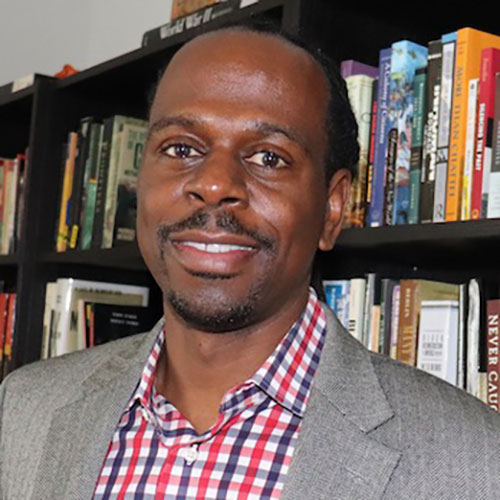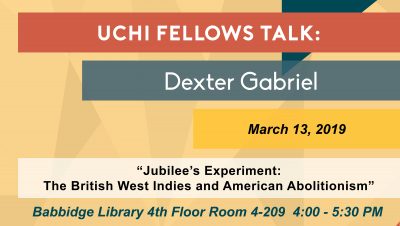

1. Tell us a bit about the project you are working on at UCHI.
My current project, Jubilee’s Experiment: The British West Indies and American Abolitionism, examines the ways in which the emancipated British Caribbean colonies entered into the debates over abolition and African-American citizenship in the United States from the 1830s through the 1860s. It analyzes this discourse as both propaganda and rhetoric, created by abolitionists, black and white, and African-Americans more generally, in antebellum America.
2.What drew you to this topic and what exciting developments are you anticipating?
This was a public discourse, taking place in newspapers, pamphlets, manuscripts, speeches, and even public spectacles. The most prominent of these were annual memorials of British Emancipation. These were held every August 1, primarily in the Northeast. It was coming across a poster for one of these events that first drew me to the topic, as I wanted to know why thousands of American abolitionists and reformers were celebrating the end of slavery in the British West Indies. What did it mean to them? Why did they think it important? What were they hoping to accomplish? As part of my project, I’m working on digitally mapping these August First commemorations as they took place throughout New England. It will be interesting to see what information they provide about attendants, mass mobilization, and social movements in the nineteenth-century.
3. What are you looking forward to in regard to this year at UCHI?
First, I’m looking forward to getting work done on the manuscript. I’m grateful that the fellowship will allow me the space and time needed towards that goal. I’m also looking forward to engaging with the other scholars in residence, and the chance to work, dialogue, share and exchange ideas within a vibrant intellectual community.
4. Many people wonder what value the humanities and humanities research has in today’s world. What are your thoughts on what humanities scholarship “brings to table?”
The humanities remain a fundamental part of a liberal arts education. It helps us explore the human experience and provides a better understanding of both our own society and the world we live in. Within my own work, research into the history of slavery and emancipation helps us understand how people in the past grappled with the immense moral issues of their day—and perhaps offer some insight into how we might do the same in our time.

